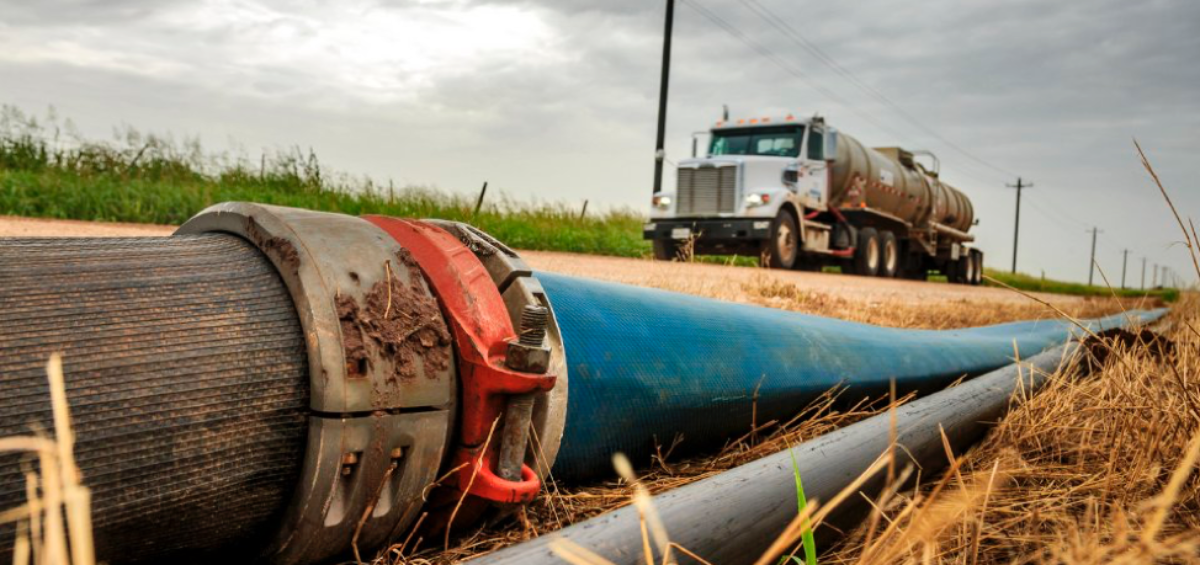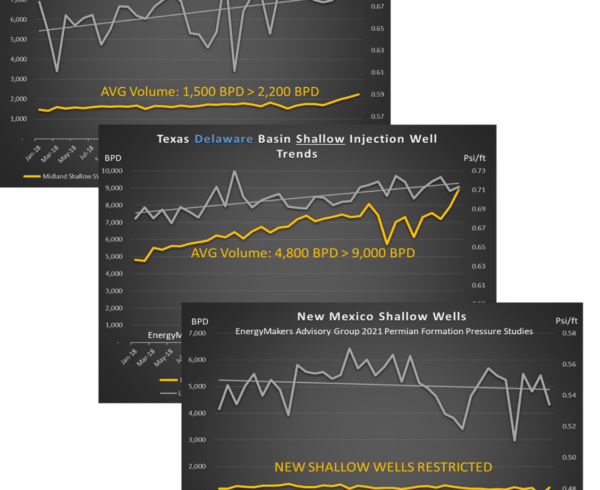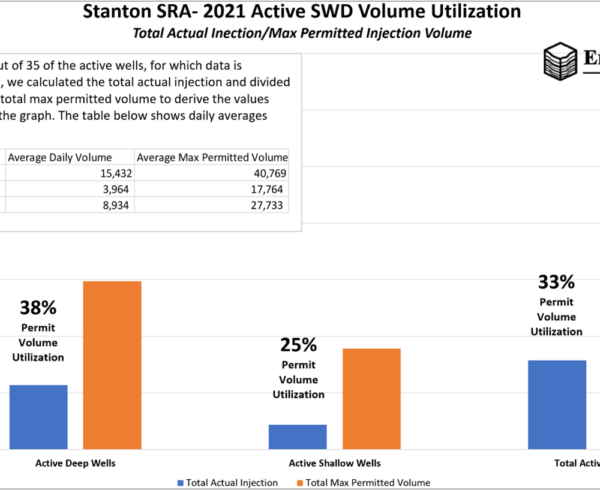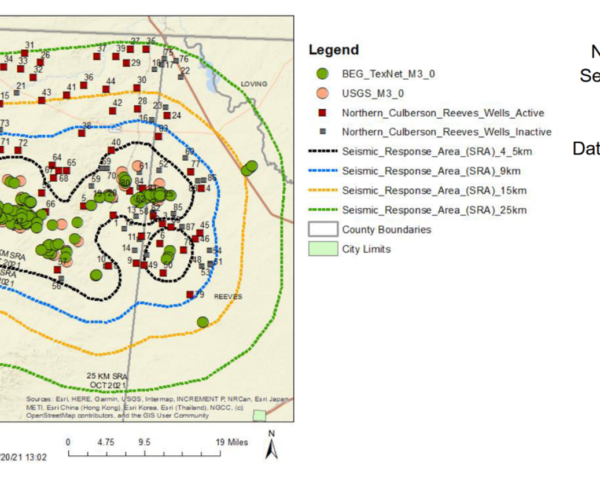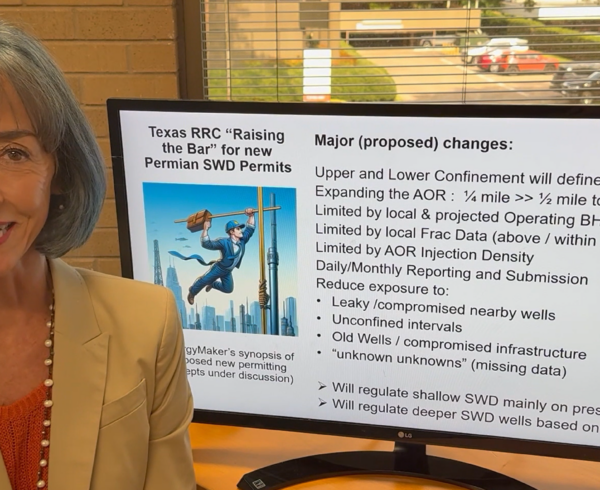In Kingfisher County, the heart of Oklahoma’s oil patch, the summer of 2018 has seen concerns about produced water handling turn into a heated fight between state regulators and oil and gas companies. The heart of the conflict centers on the use of water in temporary piping (most typically, flexible lay-flat hoses) that are placed in county rights of way, in the ditches along Kingfisher County’s roads.
Oil and gas companies operating in the county state that they have used heavy-duty pipes and hoses for years to transport water to and from well sites in support of drilling and hydraulic fracturing operations. But, this seems to be news to Kingfisher County commissioners, who say that they discovered just this spring that E&P companies have been using temporary pipes and hoses to transport water of widely varying quality levels.
Prompted by concerns over the liability of transporting non-potable water—concerns that were reiterated by county commissioners in neighboring Texas and New Mexico—Kingfisher County officials enacted new rules in May that allow permits for only freshwater.
Meanwhile, oil producers like Newfield Exploration feel blindsided by these new rules, which they say will force serious changes to their development plans in the years ahead. While Newfield has installed 140 miles of permanent pipe in Kingfisher County to move water to and from well sites and has storage facilities that can hold about 10.5 million gallons of water, these activities don’t completely remove the need for portable pipe.
For one thing, permanent pipe systems are not set up to link to every well site, particularly new drilling and fracturing locations that may become available. The oil company states that they need temporary pipes and hoses to make the necessary connections from the permanent pipe to the well sites. Importantly, temporary pipelines are essential to recycling and reuse programs, allowing industry to take advantage of salty produced water for their fracturing needs, instead of consuming more valuable freshwater resources best reserved for human use, agriculture, and ranching.
What about simply using more trucks to transport the water? The economics prohibit it. Moving a barrel of water in a pipe costs pennies versus dollars with trucks. Such a sizable jump in transport costs significantly alters the production economics for area operators, who could logically respond by drilling fewer wells in the area. More importantly, the move to restrict pipelines is “rolling back the clock” on environmental progress in industry. Fewer pipelines means more trucks moving through small towns, more emissions, and increased likelihood of trucking-related incidences. It’s hard to believe that would be an attractive alternative for area residents.
If the temporary pipeline ban continues indefinitely and the option to recycle is eliminated, operators may also be forced to inject more of their produced water back into the ground via disposal wells. The practice of high-volume injection of produced water is increasingly associated with a higher incidence of earthquake activity.
And how has the oil and gas industry reacted to Kingfisher County’s temporary pipeline ban? In late August, the Oklahoma Oil & Gas Association filed a lawsuit against the county’s commissioners, arguing that the ban violated state law.
In the long-term, will this dispute be resolved in a way that satisfies the county, and allows oil and gas producers to continue ramping up their E&P activities and take advantage of the industry’s ongoing upswing? Time will tell.
One interesting note: The link between produced water injection into Class II disposal wells and the increased risk of induced seismic events is discussed in detail in EnergyMakers Advisory Group’s comprehensive Underground Injection Risk Report. Contact us today to learn more about this indispensable industry resource.
A collaborative workshop on the Kingfisher County Ban will be on the agenda at the Cost-Effective Water Management Congress 2018, which will be held 11 – 13 December 2018 in Oklahoma City, Oklahoma. EnergyMaker’s CEO Laura Capper will be presenting some of the findings of the Underground Injection Risk Report at this American Business Conferences event dedicated to the complete spectrum of water management challenges specific to the region.


